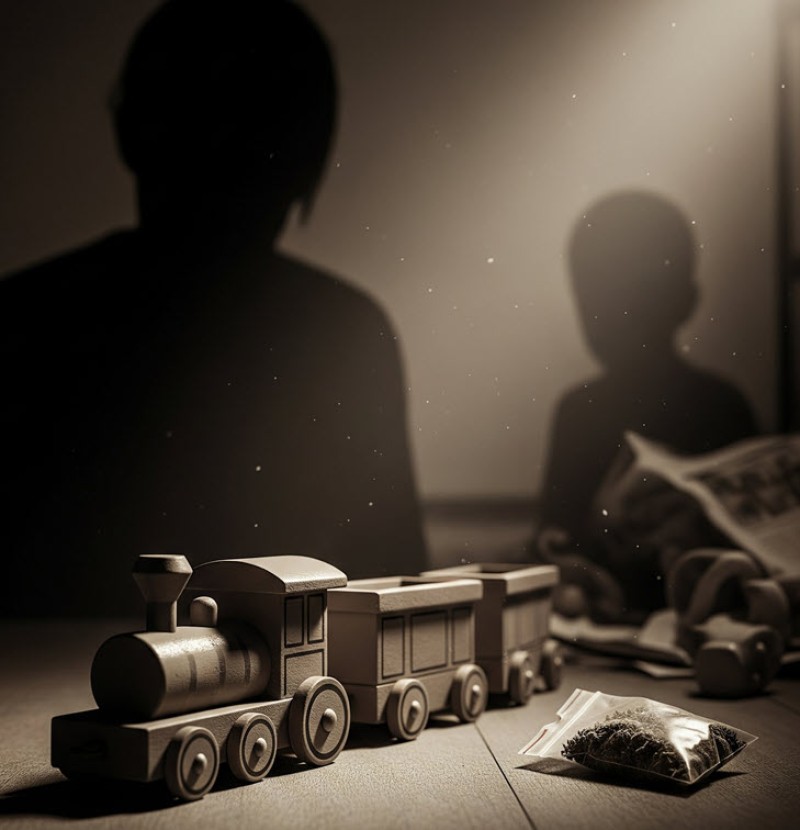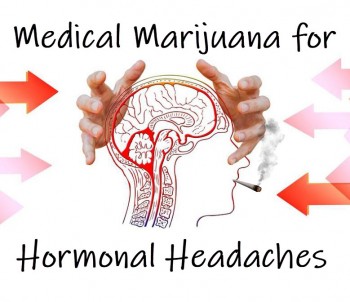
When I heard about seven-year-old Archie York's death in a cannabis lab explosion in Newcastle, my first reaction wasn't the expected outrage at the "drug dealer" responsible. Instead, I felt a familiar, sickening realization: this child's death wasn't just a tragedy—it was entirely preventable. Archie didn't die because cannabis exists; he died because cannabis prohibition forced production underground, into amateur hands, in residential buildings, without safety standards or oversight.
The details are heartbreaking. A man operating a makeshift cannabis concentrate lab in a residential building caused an explosion that killed Archie while he slept, along with another adult. Six properties were destroyed, 100 people displaced, and financial damages reached £3.7 million. Reece Galbraith, the 33-year-old responsible, was sentenced to 14 years for manslaughter.
But there's a painful truth beneath these headlines that few are willing to confront: Archie York's death certificate should list "prohibition" as a contributing cause of death. When we push desired substances into the shadows, we don't eliminate demand—we simply ensure that production happens in the most dangerous way possible, by the least qualified people, in the worst locations.
While Galbraith undoubtedly bears personal responsibility for his reckless actions, the conditions that put him in that apartment with butane canisters were created by policy choices. This wasn't an unavoidable tragedy; it was the predictable consequence of a failed approach to substance regulation that we stubbornly refuse to reconsider even as the bodies pile up.
How many more children need to die before we acknowledge the obvious: prohibition kills. And sometimes, it kills innocent seven-year-olds named Archie who never chose to be part of this senseless "war on drugs."
The Deadly Paradox of Prohibition
The explosion that claimed Archie York's life exposed the deadly paradox at the heart of cannabis prohibition. By making cannabis production illegal, we don't eliminate it—we simply push it into unregulated, unsafe environments like residential apartments where children sleep.
In Newcastle, prosecutors revealed that Galbraith was processing cannabis into concentrates using butane, a highly volatile gas that expands 230 times when it converts from liquid to gas. Over 100 butane canisters were found among the rubble. This dangerous process—called "BHO extraction"—creates what consumers know as "shatter" or "butane honey oil," which is then used in edibles and other cannabis products.
In a regulated market, this extraction would happen in dedicated facilities with proper ventilation, fire suppression systems, and trained technicians following established safety protocols. These facilities would be located in industrial zones, far from residential areas. But prohibition ensures that none of these safety measures exist. Instead, we get makeshift labs in apartment buildings where families live and children sleep.
"The process of making shatter is inherently dangerous because butane is highly flammable," explained prosecutor David Brooke. But what he failed to mention is that this danger is exponentially multiplied by prohibition. In legal markets like Canada and California, BHO extraction is strictly regulated, requiring closed-loop systems that prevent gas leakage, professional training, proper facilities, and regular safety inspections.
Home extraction with butane is so notoriously dangerous that even in states with legal cannabis, it remains explicitly forbidden. Colorado's legalization law, for example, specifically prohibits home BHO production because of these dangers. Instead, consumers can purchase professionally made concentrates from licensed facilities that must meet rigorous safety standards.
This isn't just speculation. BHO explosions were once common in Colorado before legalization. After regulation was implemented, these incidents plummeted. According to data from the Rocky Mountain High Intensity Drug Trafficking Area, BHO explosions in Colorado dropped by over 60% in the first two years after retail sales began, despite a massive increase in overall concentrate consumption.
The pattern repeats across legalized jurisdictions: when production moves from basements and kitchens to regulated facilities, explosion incidents decrease dramatically. Meanwhile, in prohibition states and countries, these dangerous incidents continue unabated.
What happened in Newcastle isn't an anomaly—it's the inevitable consequence of prohibition. When we push production underground, we don't eliminate cannabis concentrates; we simply ensure they're produced in the most dangerous possible manner, often by untrained individuals using improper equipment in residential settings.
Archie York died because our drug policies pretend we can eliminate cannabis by making it illegal. This fantasy costs lives—sometimes the lives of those who never chose to participate in the cannabis market at all, like a sleeping seven-year-old boy.
The Human Cost of "Protecting" Society
When prohibition advocates defend current policies, they often claim they're "protecting society"—particularly children. But cases like Archie York's death reveal the cruel irony of this claim. The very policies supposedly protecting children are putting them directly in harm's way.
Katherine Errington, Archie's mother, delivered a heart-wrenching victim impact statement in court: "You brought gas canisters into a building where families lived. You ran a drugs operation under the floor where my children slept." Her pain is unimaginable, her anger justified. But there's a tragic misdirection in her words that reflects our society's broader blindness.
While Galbraith bears personal responsibility for his actions, we must ask the uncomfortable question: why was cannabis concentrate being produced in a residential building in the first place? The answer is simple—because prohibition leaves no alternative. There are no licensed facilities, no industrial zones designated for extraction, no safety standards to follow. When we prohibit something that people want, we don't eliminate it; we simply ensure it happens in the most dangerous way possible.
The human cost extends beyond those directly affected by explosions. The court heard that more than 100 people were displaced when the building was destroyed, with 53 residents unable to return home. The financial impact reached approximately £3.7 million. These are real costs borne by real people—all because we pretend that making cannabis illegal somehow makes it disappear.
Meanwhile, in regulated markets like Canada and legal U.S. states, concentrate production happens in dedicated facilities with proper safety measures. These facilities are subject to rigorous inspections, operated by trained professionals, and located away from residential areas. The products they create are tested for potency and contaminants, labeled accurately, and sold only to adults.
The stark contrast couldn't be clearer: regulation protects people, prohibition endangers them. Yet we continue with policies that repeatedly prove not just ineffective but actively harmful to the very people they claim to protect.
Archie York's death wasn't a necessary sacrifice in some noble war against drugs. It was the predictable, preventable result of policies that prioritize ideological purity over practical safety. His death certificate should list "prohibition" as a contributing cause—because without prohibition, cannabis extraction wouldn't happen in residential buildings where children sleep.
Society's Hypocrisy: The Drugs We Accept vs. The Ones We Don't
Perhaps the most frustrating aspect of tragedies like Archie York's death is the stunning hypocrisy they reveal about our society's relationship with drugs. We aren't a drug-free society—we're a society that arbitrarily decides which drugs are acceptable and which are forbidden, often with little regard for actual harm profiles.
Consider this: in the same Newcastle neighborhood where Archie died, there are likely multiple stores legally selling alcohol—a drug directly responsible for nearly 3 million deaths globally each year, according to the World Health Organization. These establishments operate with licenses, safety regulations, age restrictions, and quality controls. Nobody is brewing vodka in their apartment with makeshift stills that might explode.
Why? Because we recognized long ago that alcohol prohibition created more problems than it solved. The lessons of America's failed experiment with alcohol prohibition in the 1920s were clear: banning a popular substance doesn't eliminate it—it simply creates black markets, empowers criminals, endangers consumers with unregulated products, and generates collateral damage to innocent bystanders.
Yet we refuse to apply this same logical framework to cannabis, despite overwhelming evidence that cannabis is significantly less harmful than alcohol by almost every metric. A landmark study in The Lancet led by Professor David Nutt ranked alcohol as the most harmful drug overall when considering harm to users and harm to others. Cannabis ranked far lower on the scale, with most of its harms directly attributable to its illegal status rather than the substance itself.
The hypocrisy extends beyond alcohol. Tobacco products, responsible for more than 8 million deaths annually worldwide, are sold legally in regulated markets. Highly processed foods loaded with sugar and unhealthy fats—major contributors to the obesity epidemic and related diseases—fill our supermarket shelves. Prescription opioids, benzodiazepines, and stimulants are widely available through legal channels despite their significant risks and addictive potential.
Our society doesn't hate drugs—we love them. We simply maintain an irrational distinction between the drugs we've decided to accept and those we've decided to demonize, often based on historical prejudices, cultural biases, and lobbying influence rather than scientific evidence or harm reduction principles.
Archie York died because we persist in the fantasy that we can eliminate cannabis through criminal prohibition. Meanwhile, we regulate genuinely dangerous substances like alcohol and tobacco—not because regulation is perfect, but because we've recognized that regulation, with all its flaws, is infinitely better than prohibition.
The death of a seven-year-old boy should force us to confront this hypocrisy. How many more innocent lives must be sacrificed on the altar of this failed moral crusade before we accept the obvious: regulation saves lives; prohibition takes them.
A Better Way Forward: Regulation Over Prohibition
The death of Archie York wasn't just a tragedy—it was a policy failure with a clear alternative. Had the UK adopted a regulated cannabis market like Canada, Colorado, or an increasing number of jurisdictions worldwide, this explosion simply wouldn't have happened.
Regulation doesn't mean endorsement or promotion. It means accepting reality: cannabis exists, people use it, and pretending otherwise gets innocent children killed. A regulated cannabis market includes:
-
Safety standards for production: In regulated markets, concentrate production occurs in dedicated facilities with proper ventilation, fire safety systems, and trained personnel. BHO extraction, the process that killed Archie, requires specific licenses, equipment certifications, and regular inspections.
-
Zoning requirements: Cannabis production facilities must be located in appropriate industrial areas, far from residential neighborhoods. No child should ever sleep above a cannabis extraction lab—and in regulated markets, none do.
-
Professional training: Technicians working with volatile compounds like butane receive proper training and certification. They understand the chemical processes involved and follow established safety protocols.
-
Quality control: Products are tested for potency, contaminants, and residual solvents, ensuring consumer safety and accurate labeling. No one gets an unexpectedly potent product or one contaminated with harmful chemicals.
-
Age restrictions: Legal markets implement strict age verification, making it harder for young people to access cannabis than in unregulated markets where dealers don't check ID.
-
Tax revenue: Rather than spending millions arresting and prosecuting cannabis producers, governments collect tax revenue that can fund education, healthcare, and addiction services.
The results speak for themselves. Research from legal jurisdictions shows that regulated markets reduce underground production, decrease youth access, minimize explosion incidents, and generate significant economic benefits while freeing up law enforcement resources for serious crimes.
Opponents of legalization often claim they're protecting children, but Archie York's death exposes this as a cruel fiction. Prohibition didn't protect Archie—it killed him by ensuring cannabis production happened in the worst possible environment: an apartment building where families lived.
Even if you believe cannabis use itself is harmful, the current approach of criminalization clearly creates more harm than the substance it targets. We need to ask ourselves: what's our actual goal here? If it's minimizing harm, especially to innocent bystanders like children, then regulation is objectively superior to prohibition.
The evidence is overwhelming. BHO explosions have decreased dramatically in legal markets while continuing unabated in prohibition jurisdictions. Product safety has improved, criminal market share has diminished, and the apocalyptic predictions of legalization opponents have failed to materialize.
Archie York deserved better than to die for our collective inability to learn from history and evidence. His death wasn't inevitable—it was the predictable result of a failed policy approach that we stubbornly maintain despite overwhelming evidence of its failure.
The Sticky Bottom Line
The death of seven-year-old Archie York represents the ultimate failure of cannabis prohibition. This tragedy wasn't caused by cannabis itself but by the conditions created when we push production underground, into amateur hands, in inappropriate locations, without safety standards or oversight.
While Reece Galbraith bears personal responsibility for his actions, we cannot ignore the policy framework that made this tragedy possible—even predictable. By criminalizing cannabis production rather than regulating it, we ensure it happens in the most dangerous manner possible, often in residential areas where families live.
The bitter truth is that prohibition doesn't protect children; it endangers them. It doesn't eliminate cannabis; it simply pushes production into shadows where explosions kill innocent seven-year-olds while they sleep. These aren't necessary sacrifices in some noble war on drugs—they're preventable tragedies resulting from policies that prioritize ideology over evidence.
As a society, we need to confront our hypocrisy around substances. We aren't fighting to be drug-free; we're arbitrarily deciding which drugs to accept and which to criminalize, often with little regard for actual harm profiles. We regulate alcohol and tobacco not because regulation is perfect, but because we recognize it's vastly superior to prohibition.
The path forward is clear: we must move from prohibition to regulation, not because cannabis is harmless, but because regulation minimizes harm in ways prohibition fundamentally cannot. A regulated market with proper safety standards, appropriate zoning, professional training, and quality control would have prevented this tragedy. No child should sleep above a cannabis lab—and in regulated markets, none do.
Archie York's death certificate won't list prohibition as a cause of death, but it should. His life was cut short not by cannabis itself but by the dangerous conditions created when we criminalize its production rather than regulating it safely. Until we acknowledge this reality and change course, more innocent lives will be lost to this failed approach.
The true tragedy isn't just that Archie died—it's that his death was entirely preventable. We know how to stop these explosions. We have the evidence, the models, the data. What we lack is the political courage to admit that prohibition kills, and sometimes what it kills are sleeping children who never chose to be part of our senseless war on drugs.
For Archie's sake, and for all the potential future victims of prohibition's collateral damage, it's time to embrace regulation over criminalization. Because no policy that gets children killed while they sleep can possibly claim to be protecting them.







